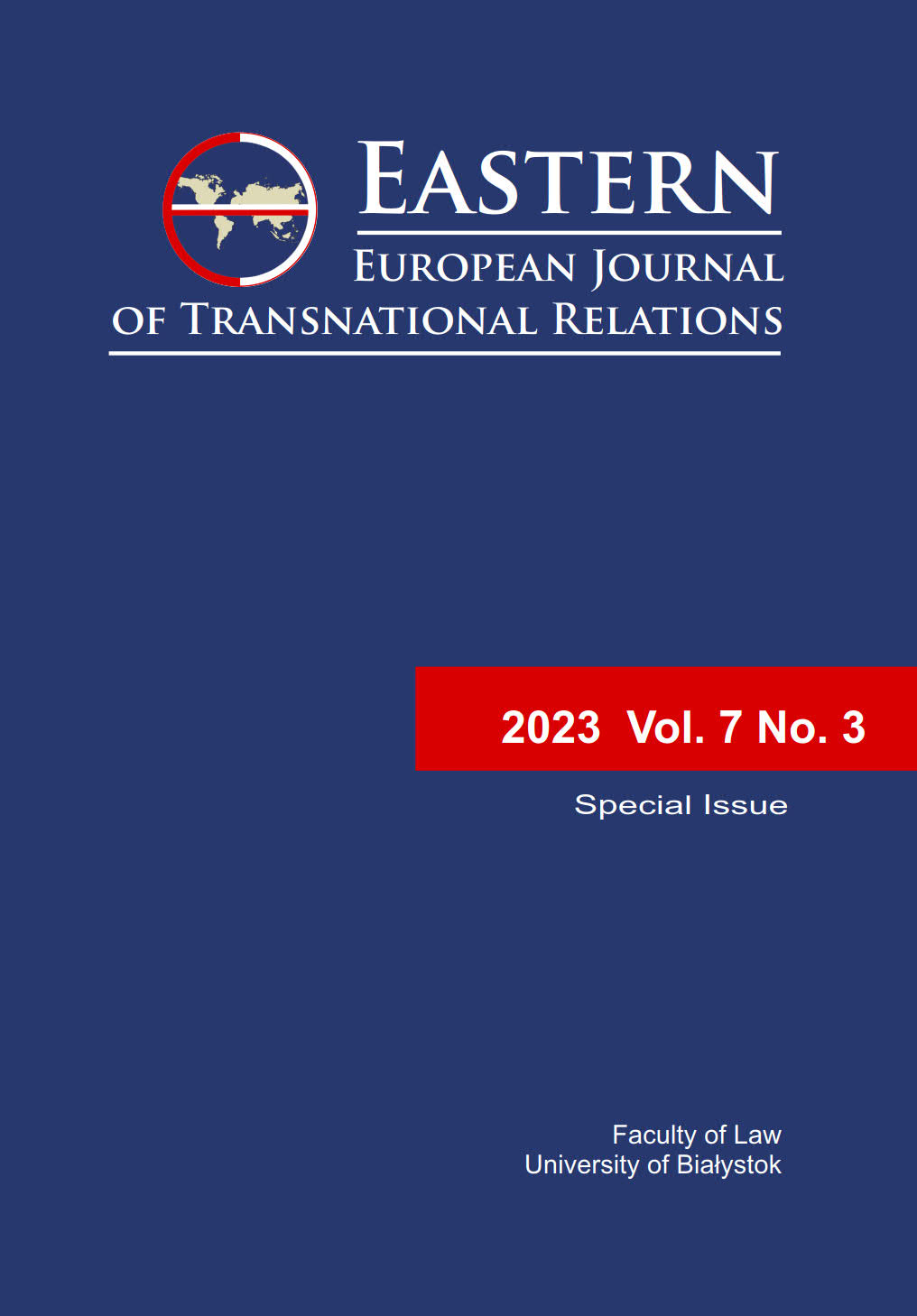The European Right to Social and Medical Assistance
DOI:
https://doi.org/10.15290/eejtr.2023.07.03.01Słowa kluczowe:
adequate assistance, equal treatment, free and unrestricted services, social and medical assistance, social welfare, subjective rightsAbstrakt
The provisions of Articles 11 to 17 of the European Social Charter and Articles 23, 30 and 31 of the Revised European Social Charter establish social security standards universally applicable in Europe. Among these provisions, Article 13 is important, which defines common standards of broadly understood social security. Establishing and maintaining these social security systems is the responsibility of the authorities of the Member States forming the Council of Europe. These countries have an obligation to improve their national social security systems. The standards for assessing the conformity of national social security systems in Europe are set, in the case of countries that have ratified the European Charter of Social Rights, by ILO Convention No. 102 or, in the case of countries that have committed themselves to the 1996 Revised European Social Charter, by the European Code of Social Security. In particular, the standards contained in Article 12 paragraph 4 of both Social Charters of the Council of Europe are the basis of the most widely understood principle of social protection on the European continent. This principle applies to all citizens of the Member States of the Council of Europe, regardless of their place of residence on the European continent. The provision of Article 12 paragraph 4 letter ‘b’ of the European Social Charter is a legal norm that has a chance to initiate the process of free movement of insured persons between the states forming the Council of Europe. In the case of countries belonging to the European Union, the Committee of Social Rights requires that reports on the application of social security standards include information on the movement of insured persons from non-EU countries and their legal situation in matters relating to the granting, maintenance and restoration of rights to social benefits while observing the principle of including periods of insurance in other Council of Europe countries into the insurance period. The achievements of the Committee for Social Rights in matters relating to the establishment and observance of social security standards in Europe, presented in this article, justify the thesis that the Council of Europe has adopted and strives to implement high and effective standards of social protection of the insured.
Pobrania
Bibliografia
Harris, D., & Darcy, J. (2001). European Social Charter. Ardsley, N.Y.
Kotsoni, M. (2021, August 11). The first COVID-19 related collective complaint before the European Committee of Social Rights deemed inadmissible: Greek Bar Associations v. Greece. Strasbourg Observers, available at: https://strasbourgobservers.com/2021/08/11/the-first-covid-19-related-collective-complaint-before-the-european-committee-of-social-rights-deemed-inadmissible-greek-bar-associations-v-greece/.
Świątkowski, A.M. (2007). Charter of Social Rights of the Council of Europe. Kluwer Law International.
Pobrania
Opublikowane
Numer
Dział
Licencja

Utwór dostępny jest na licencji Creative Commons Uznanie autorstwa 4.0 Międzynarodowe.
1. The Author declares that he or she has created the written work and holds exclusive and unlimited copyright /both moral and property rights/ and guarantees that no third parties have rights to the work.
2. In the view of the Copyright and Related Rights Act, a work must fulfill the following criterion:
a) be a manifestation of creative work,
b) have an individual character („author’s personal stamp”),
c) have a set form.
3. The Author declares that the text has not been previously published (under the same or different title, or as a part of another publication).
4. The Author allows (grants a non-exclusive license) the publishing house of University of Białystok to use the scholarly text to:
- preserve and multiply by means of any technique; save in a digital form with no limitations as to the manner and form of digital preservation;
- upload online with no limitations as to the place and time of access.
5. The Author grants consent for editorial changes made in the work.
6. The Author grants the University of Białystok rights free of charge for the duration of property copyright with no territory limits. The University has the right to grant sublicenses in the acquired rights.
7. Granting a non-exclusive license allows the Author to preserve their rights and allows other parties to make use of the work according to sublicensing agreement with provisions identical as those of Attribution 4.0 Internacional License (CC BY 4.0), available online at: https://creativecommons.org/licenses/by/4.0/. License to all its content published from 2023 and CC BY-NC-ND 4.0 to all its content published from 2017 to 2022.
8. The Agreement has been concluded for an indefinite period of time.
9. Because of costs born in preparation of the work for publishing, the Parties oblige themselves to act in good faith and refrain from declining to grant licenses.
10. To all matters not settled herein, provisions of the Civil Code and Copyright and Related Rights Act of 1994, February 4 shall apply.
11. All disputes shall be resolved by a court of local jurisdiction for the place of seat of University of Białystok.


